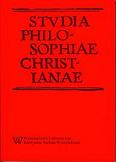Specyfika wspomaganych komputerowo badań eksperymentalnych w naukach przyrodniczych
Characteristic of experimental research in life science supported by computers
Author(s): Sławomir LeciejewskiSubject(s): Philosophy
Published by: Wydawnictwo Naukowe Uniwersytetu Kardynała Stefana Wyszyńskiego w Warszawie
Keywords: experiment; computer; new experimentalism
Summary/Abstract: The use of computers in research laboratories results in significant increase in measurement abilities. Computers allow continuous and long–lasting measurement, the analysis of unlimited empirical data inflowing of a great speed, and simultaneous control of numerous laboratory devices. Data can be processed in any way, for example by digital noise reduction, filtration or averaging. Such procedures of adjusting obtained measurement to predicted results, and statistical analysis can be conducted more easily. Empirical data analysis can be conducted during the measurement process which allows immediate modification of the experiment conditions. The experiment which applies modern computing technology consists of three interacting factors: experimenter (P) whose role is to project the experiment and analyze the findings, object undergoing the research (O) and automated empirical research system which is a connection between P and O and which can contain so–called computer aided empirical research (KWBD). The paper presents the specificity of the modern way of experimenting which is the result of more common usage of computer technology. It influences the experimenter and the object relation which affects the results of the study carried out with the application of computers.
Journal: Studia Philosophiae Christianae
- Issue Year: 45/2009
- Issue No: 1
- Page Range: 119-131
- Page Count: 13
- Language: Polish

